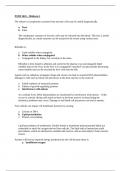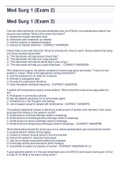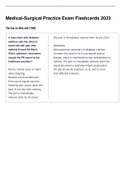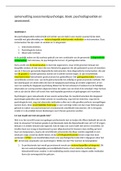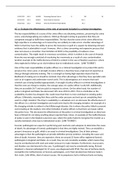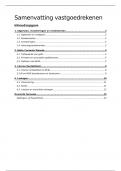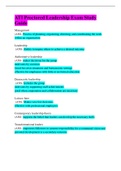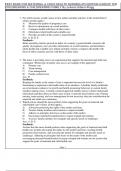Exam (elaborations)
PATH 3610 MIDTERM 1 2023 EXAM QUESTIONS AND ANSWERS
- Course
- PATH 3610
- Institution
- University Of Guelph (U Of G )
PATH 3610 – Midterm 1 The release of cytoplasmic enzymes from necrotic cells may be useful diagnostically. a. True b. False The cytoplasmic enzymes of necrotic cells may be released into the blood. This fact is useful diagnostically, as certain enzymes can be assayed in the serum using vario...
[Show more]
